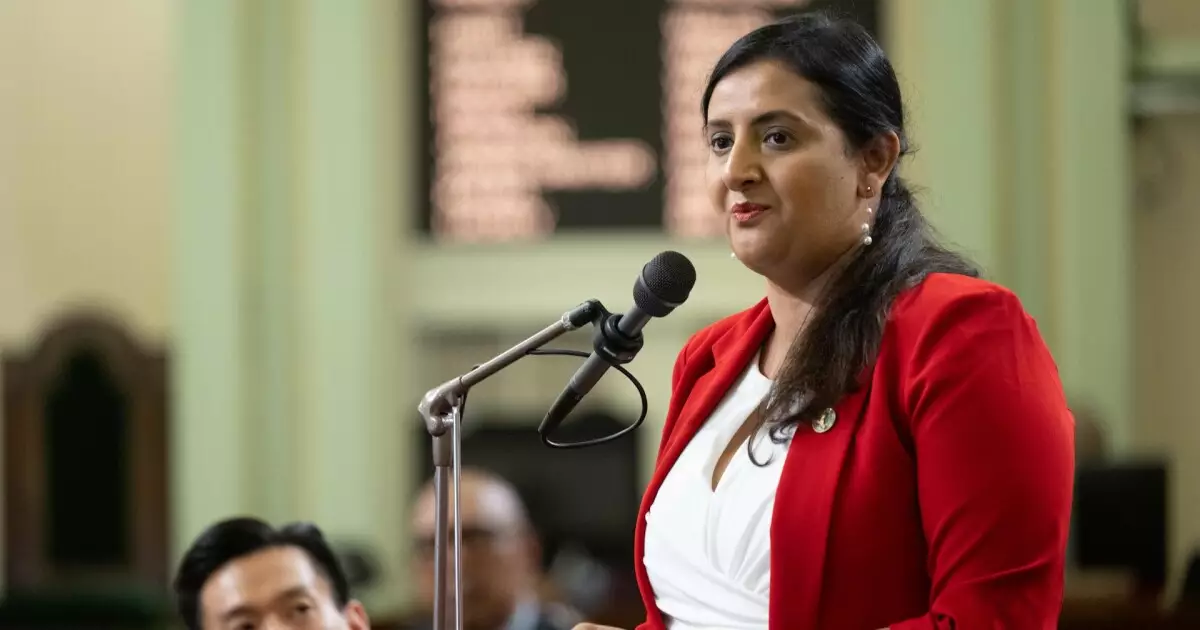California Governor Gavin Newsom’s recent decision to sign a supplemental budget bill, Assembly Bill 100, has stirred significant political unrest and skepticism. The bill allocates a staggering $2.8 billion to tackle Medi-Cal’s unexpectedly high costs. While proponents tout the positives of expanded healthcare coverage, the financial implications paint a troubling picture. Such decisions not only strain California’s budget but reveal a disturbing trend of prioritizing the financial needs of undocumented immigrants over the concerns of legal taxpayers who often find themselves struggling with rising healthcare costs.
This bill revises the 2024-25 fiscal budget rather than waiting for the regular budget cycle to conclude in June. With $11.3 billion in appropriations, many are left questioning the wisdom behind these actions, especially when combined with the recent approval of similar initiatives. It is alarming to see such massive spending without comprehensive analysis of its impact on taxpayers, especially at a time when California’s financial health is in question.
Backlash from the Right: A Questionable Financial Decision
The backlash against Assembly Bill 100 has been predominantly driven by Republican opposition. Many view the allocation for undocumented immigrants as a “gift of public funds” that drains essential resources from programs meant for legal citizens. Assemblymember Carl DeMaio of San Diego encapsulates this sentiment perfectly by noting that what was initially projected to cost $6.5 billion has ballooned to an astonishing $9.5 billion. This trajectory raises critical questions about the fiscal responsibility of our leaders and their willingness to hand over taxpayer dollars without accountability.
The era of financial generosity for undocumented immigrants must be examined closely. While the push for universal healthcare may seem noble on the surface, the underlying financial implications reveal a potentially disastrous path for California’s budget. The Republicans are not only complaining about fiscal irresponsibility but are also calling for audits to ensure transparency surrounding Medi-Cal’s financial situation. Their concern is validated by the fact that general fund spending on Medi-Cal now stands at a precarious $42.1 billion, nearly doubling in the past six years.
The Argument for Healthcare Access vs. Rising Costs
Democrats supporting the bill have argued that providing healthcare to undocumented immigrants ultimately lowers overall costs in the system. They claim that treating illnesses at an advanced stage in emergency rooms is far more costly than offering preventive care through access to healthcare services. Assemblymember Jasmeet Bains, a physician, suggests that timely intervention is crucial for the well-being of all residents, regardless of their immigration status, and that denying care leads to higher costs shared by the entire community.
However, this rationale does not hold up under scrutiny. In aiming to be compassionate, are we sacrificing the financial stability of our healthcare infrastructure? The idea that covering the health needs of undocumented immigrants will lower costs disregards the far-reaching impacts on the taxpayer-funded health system and creates moral hazard by encouraging further illegal immigration. The escalating costs of Medi-Cal cannot be dismissed as an isolated issue; they are part of a broader narrative about fiscal discipline and responsible governance.
Wildfires: A Convenient Distraction?
Interestingly, amid the contentious discussions surrounding healthcare spending, the legislation also includes funding to assist local governments affected by the recent Los Angeles wildfires. This component of Assembly Bill 100 serves as a convenient distraction, diverting attention away from the primary bone of contention—the enormity of Medi-Cal spending. While support for fire recovery is indeed crucial, it raises the question of whether tying wildfire funding to a contentious budget proposal is merely a strategic maneuver to gain broader acceptance for an unpopular policy.
Amid relentless demands on state resources, the shifting priorities demonstrated by Governor Newsom’s administration beg for further accountability. Streamlining the aid processes may provide short-term relief, but it does little to address the root problems causing budgetary chaos. By failing to curb unnecessary expenditures, we risk damaging the very foundation of state governance, particularly when issues impact the livelihoods of lawful residents in California.
The real challenge lies ahead: how do our lawmakers balance compassion for vulnerable populations with the financial imperatives of proper governance? The path we choose could either lay the groundwork for a sustainable future or plunge California into deeper financial chaos. The decisions made today have the power to affect both this generation and the next, underscoring the importance of accountability and sober decision-making around healthcare funding and state spending.


Leave a Reply